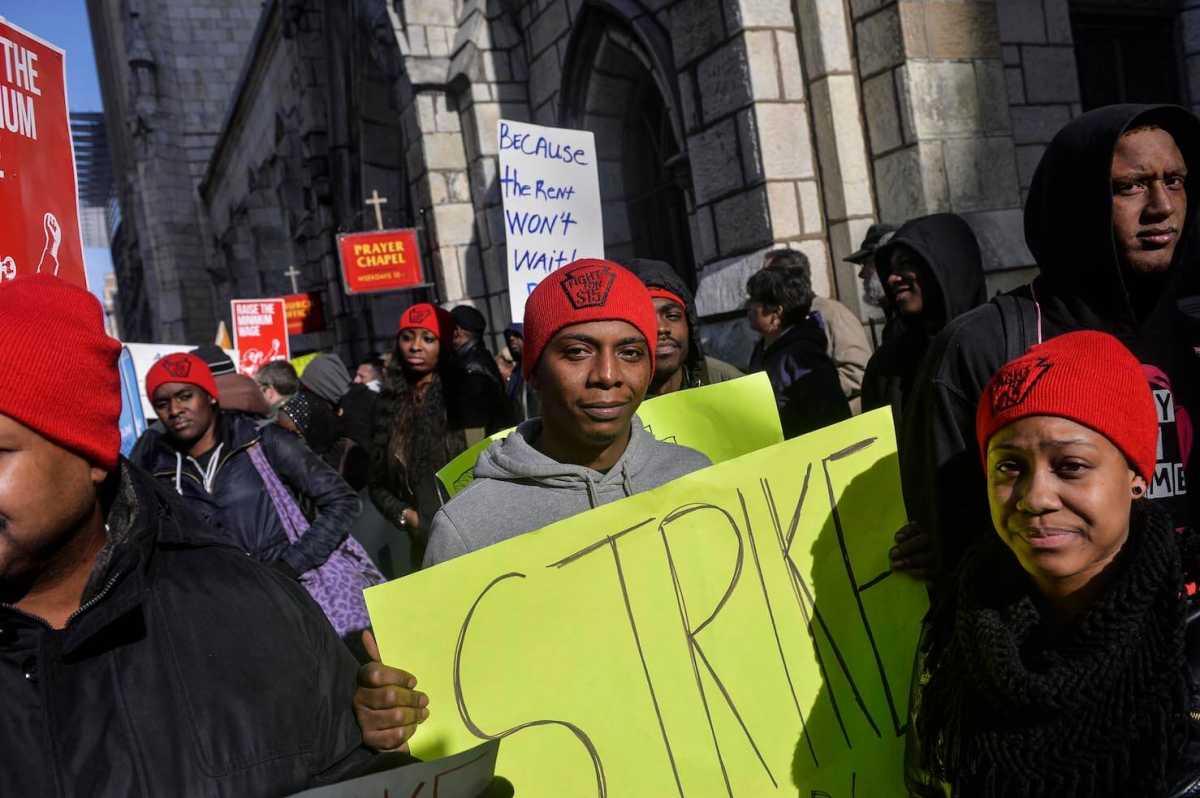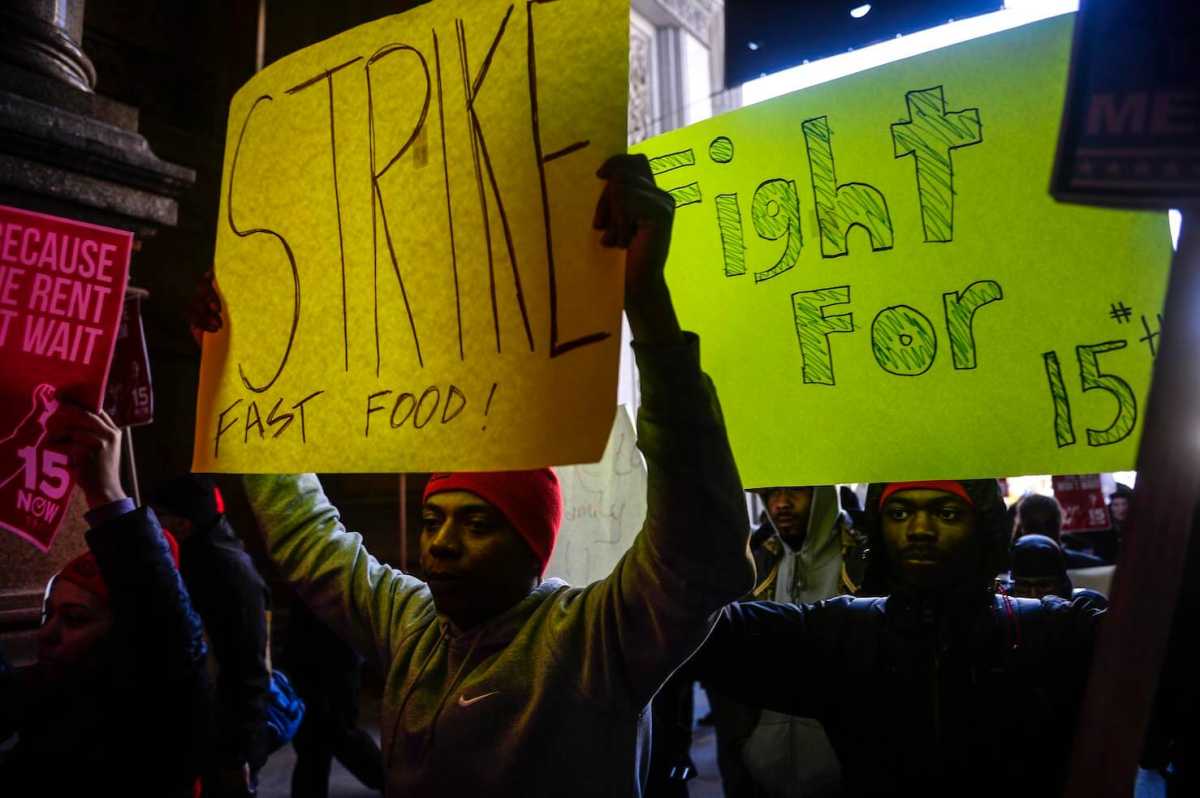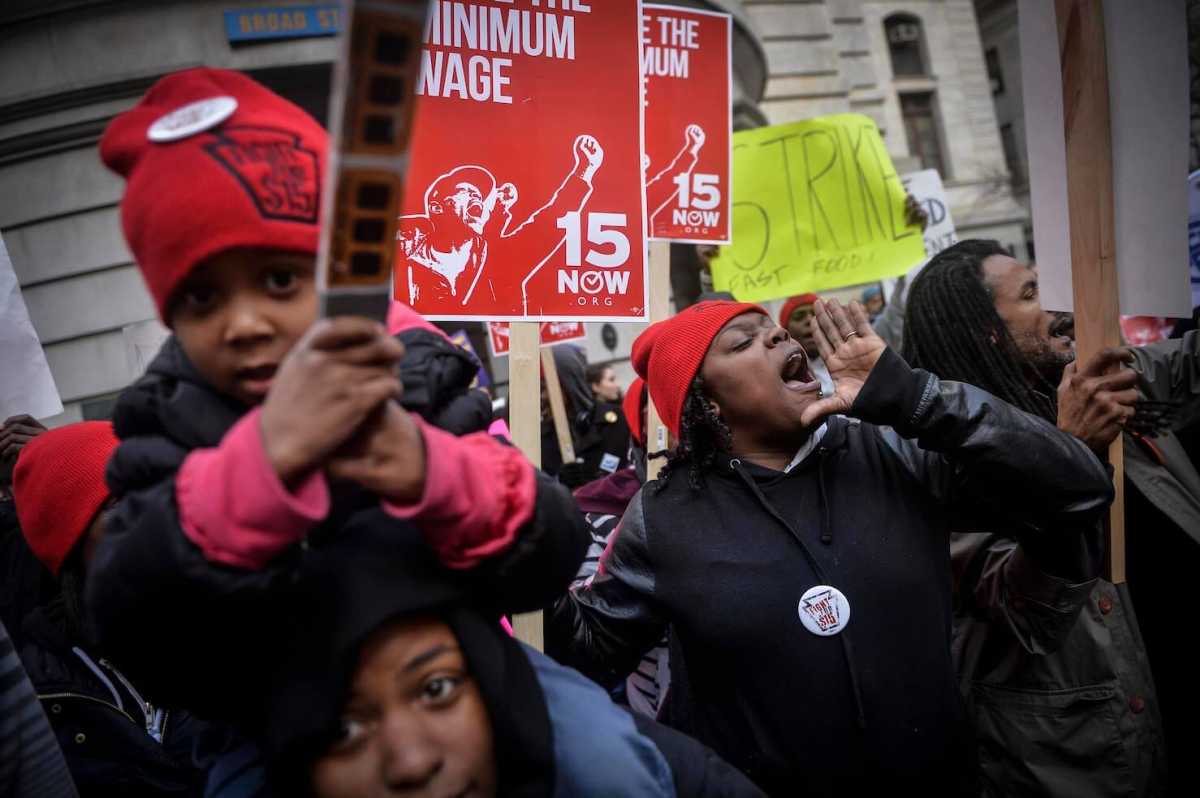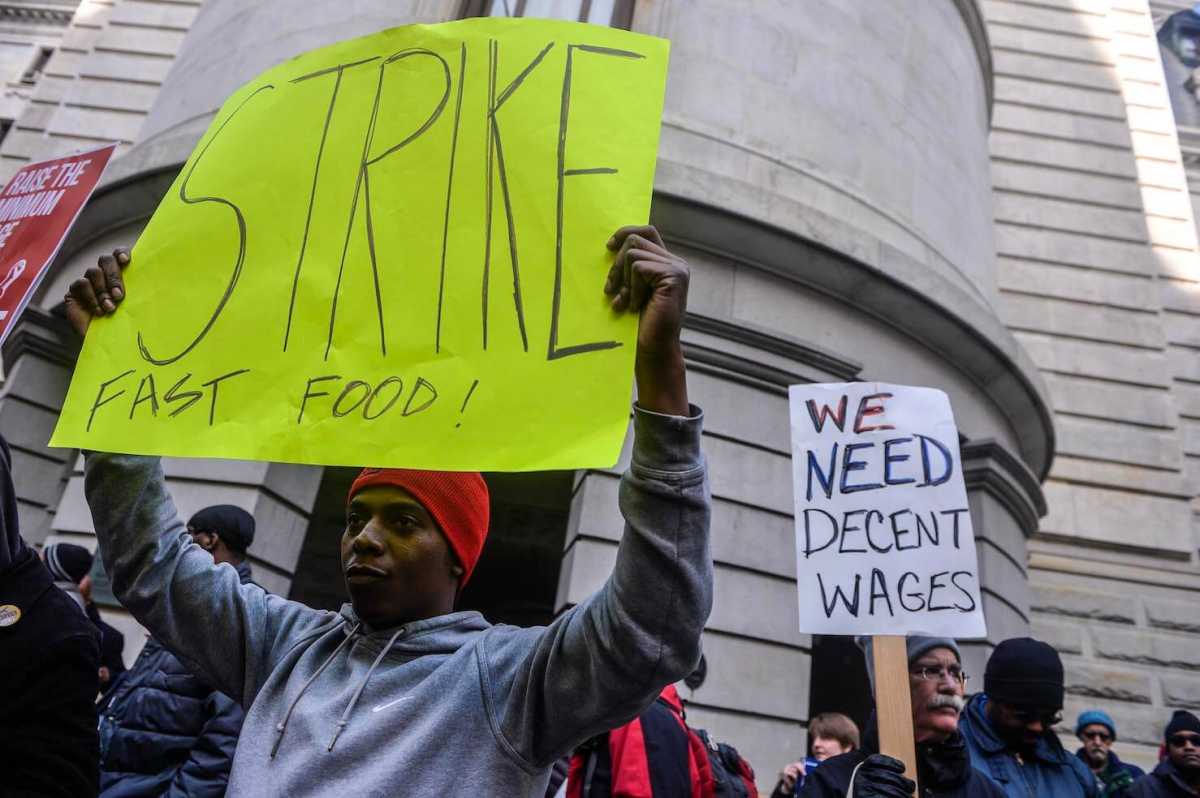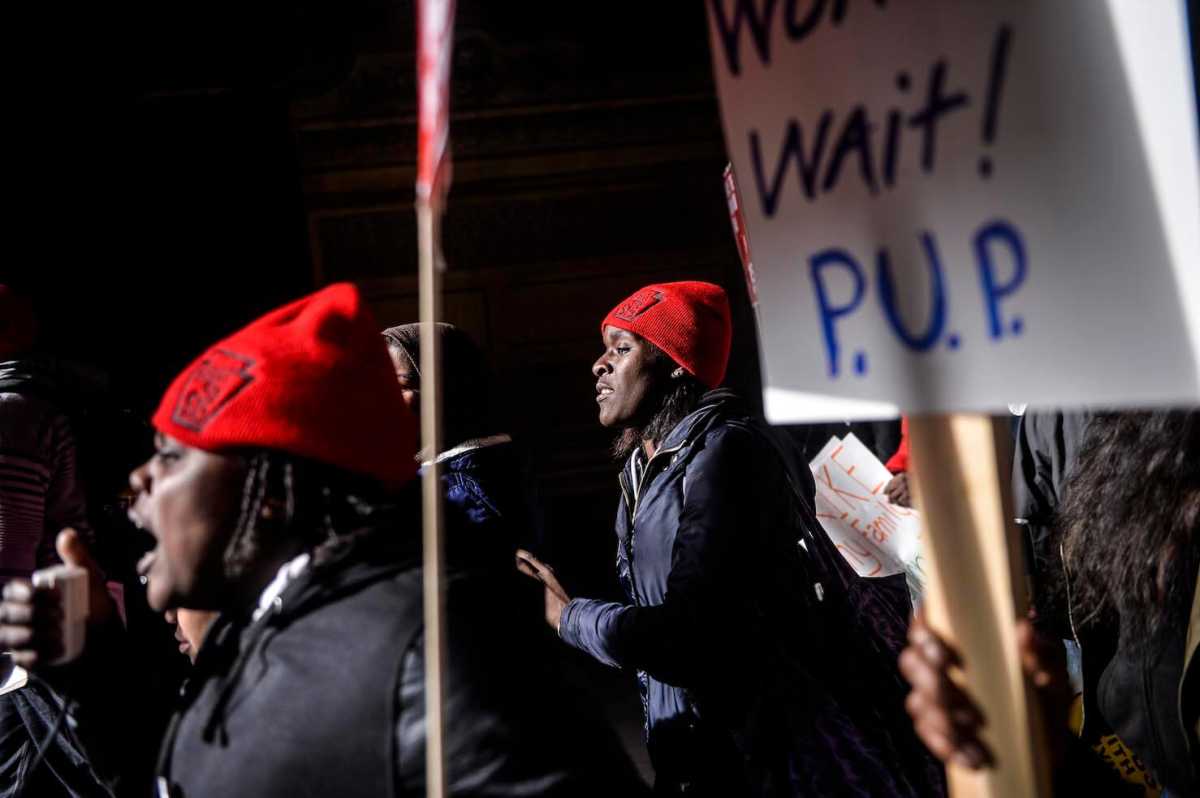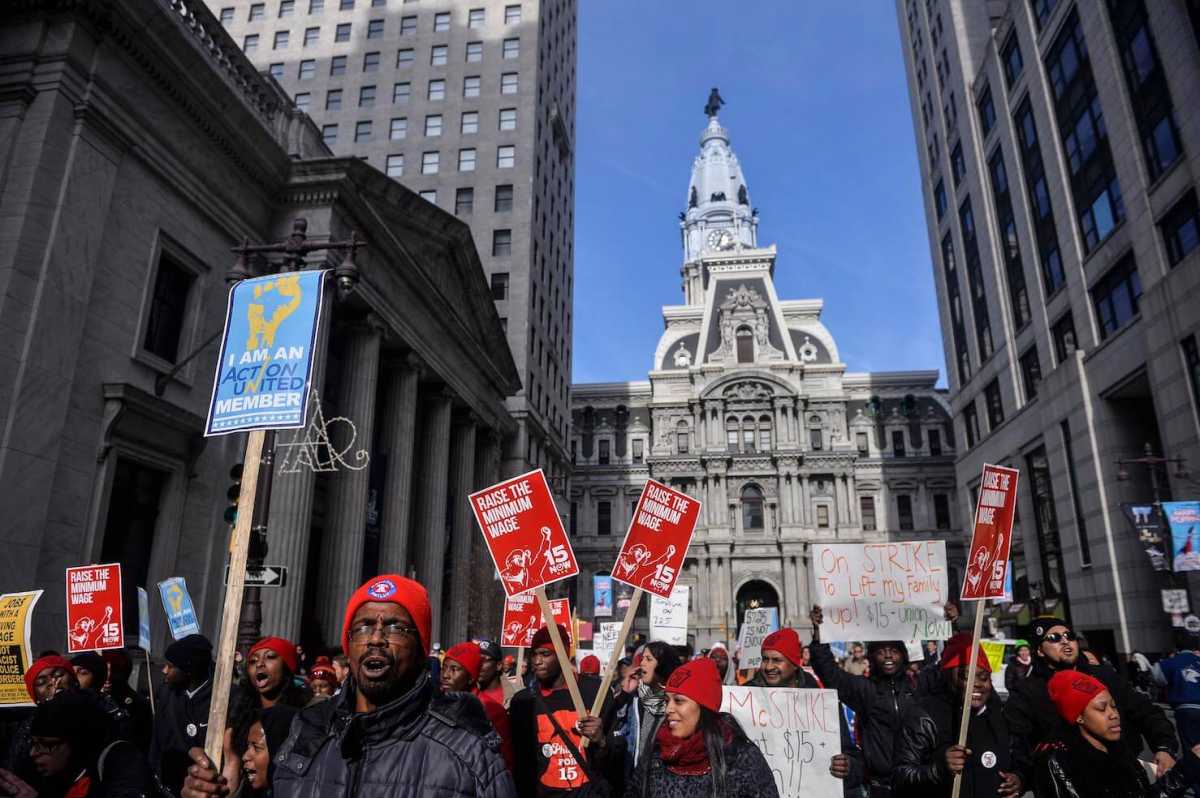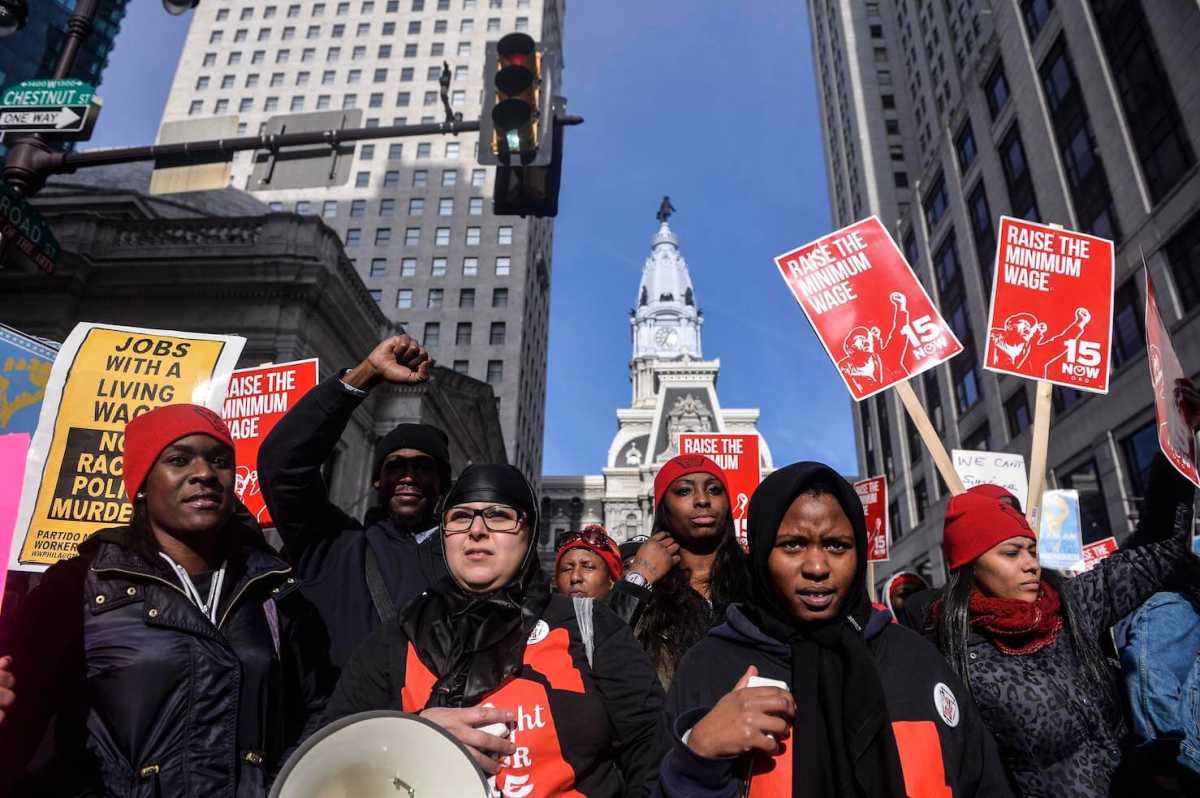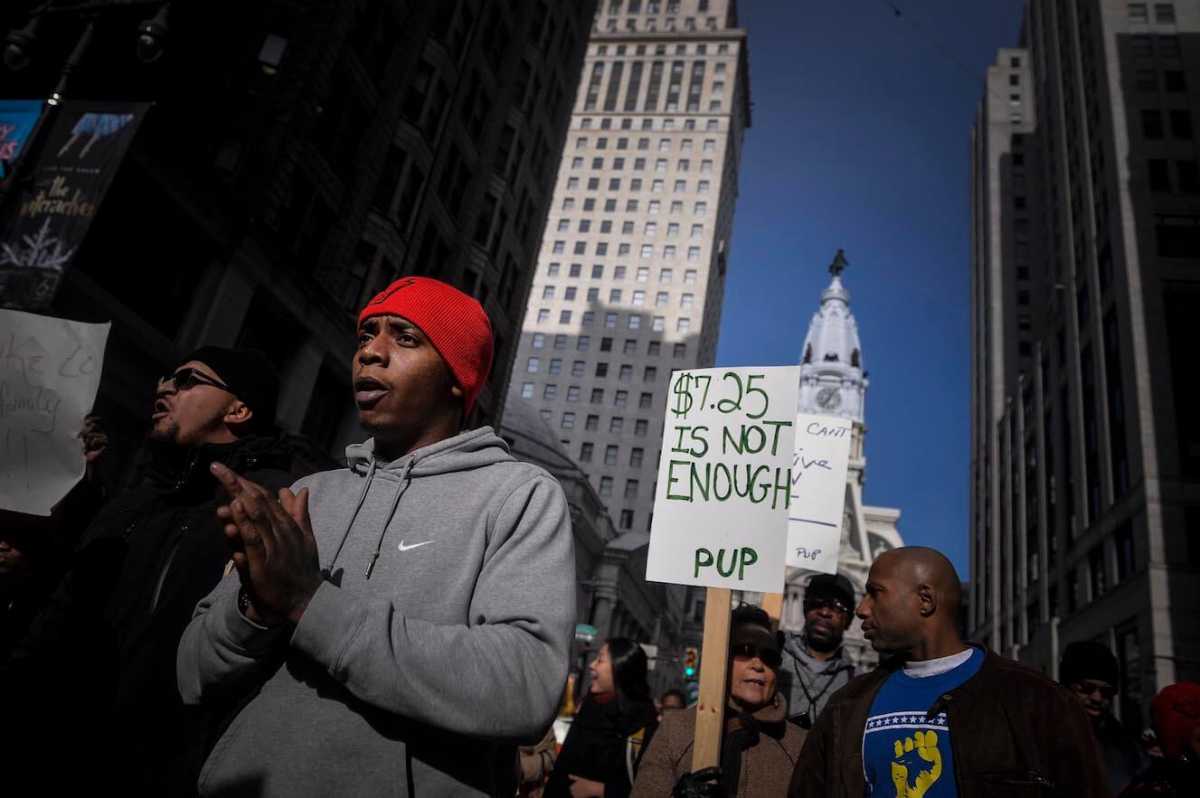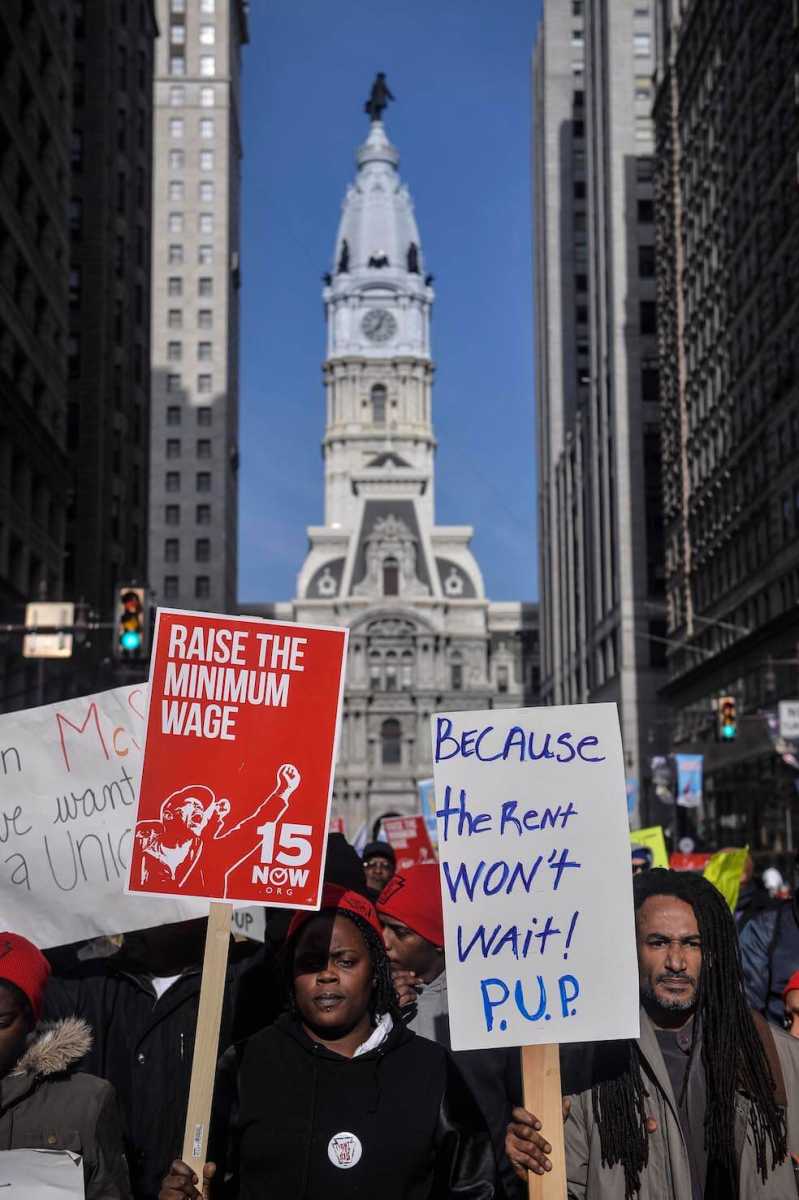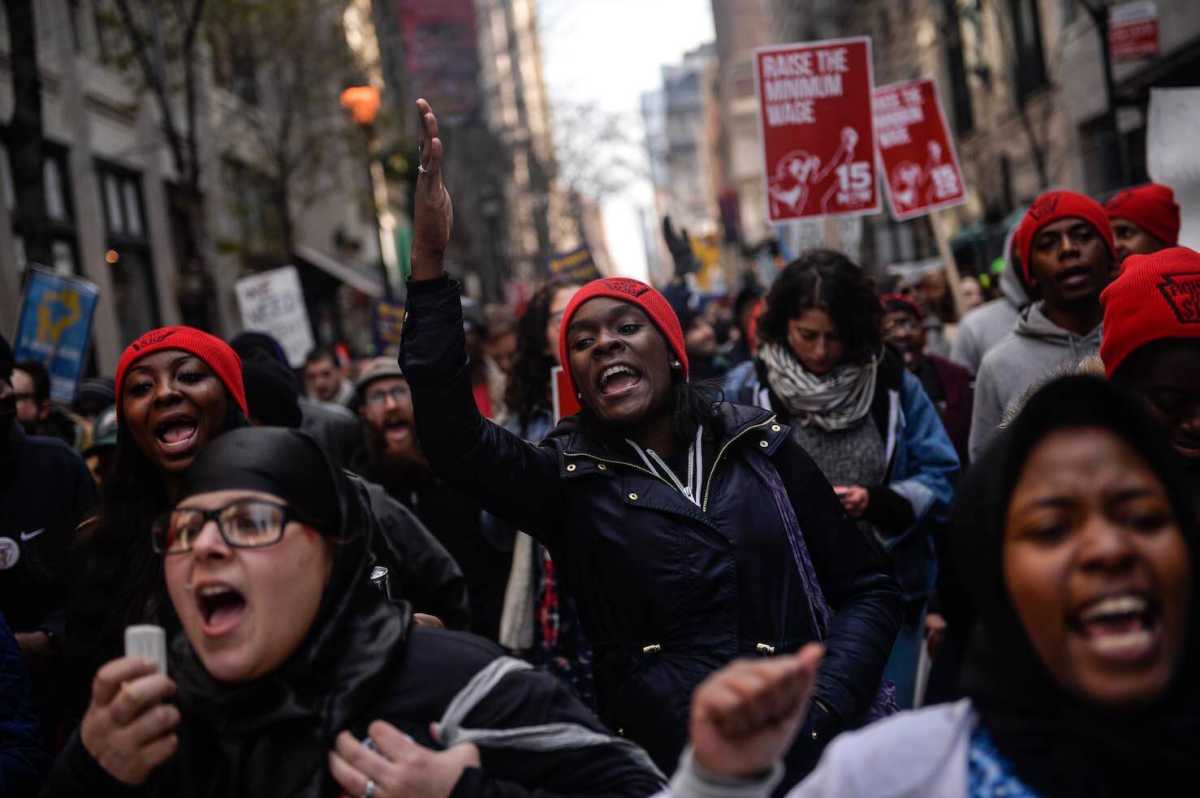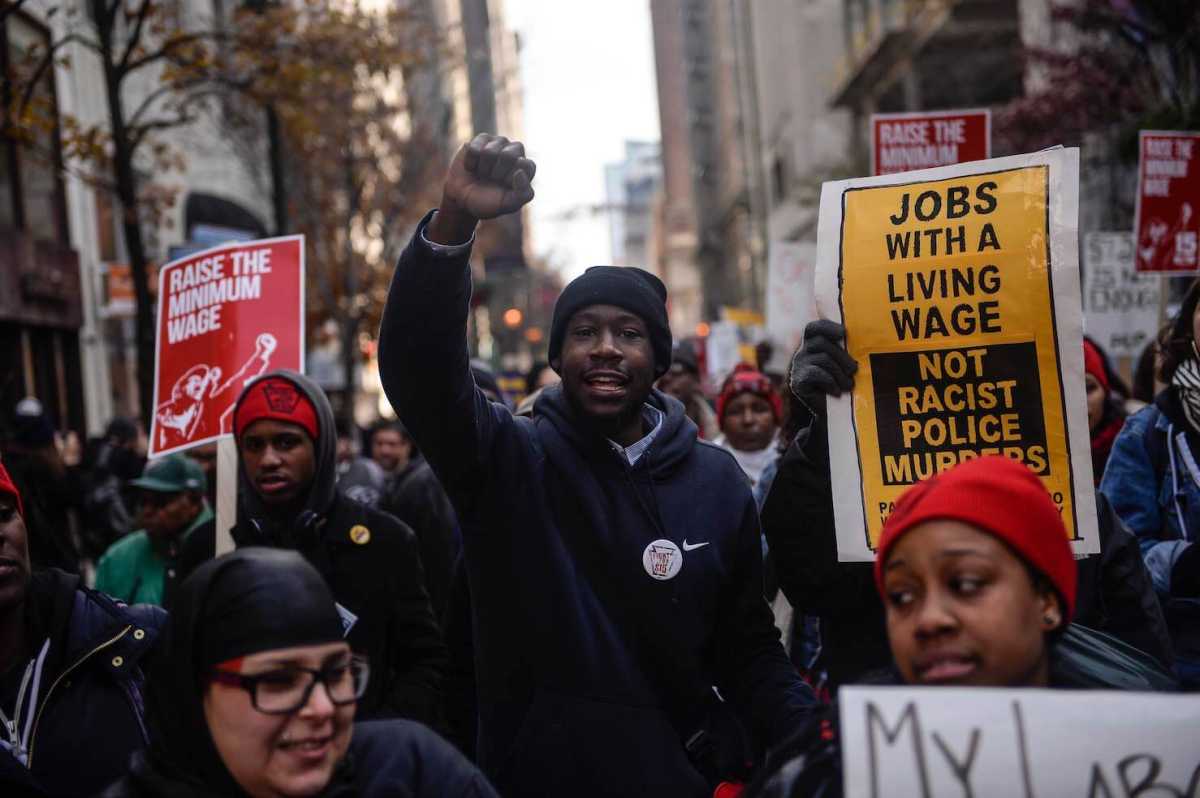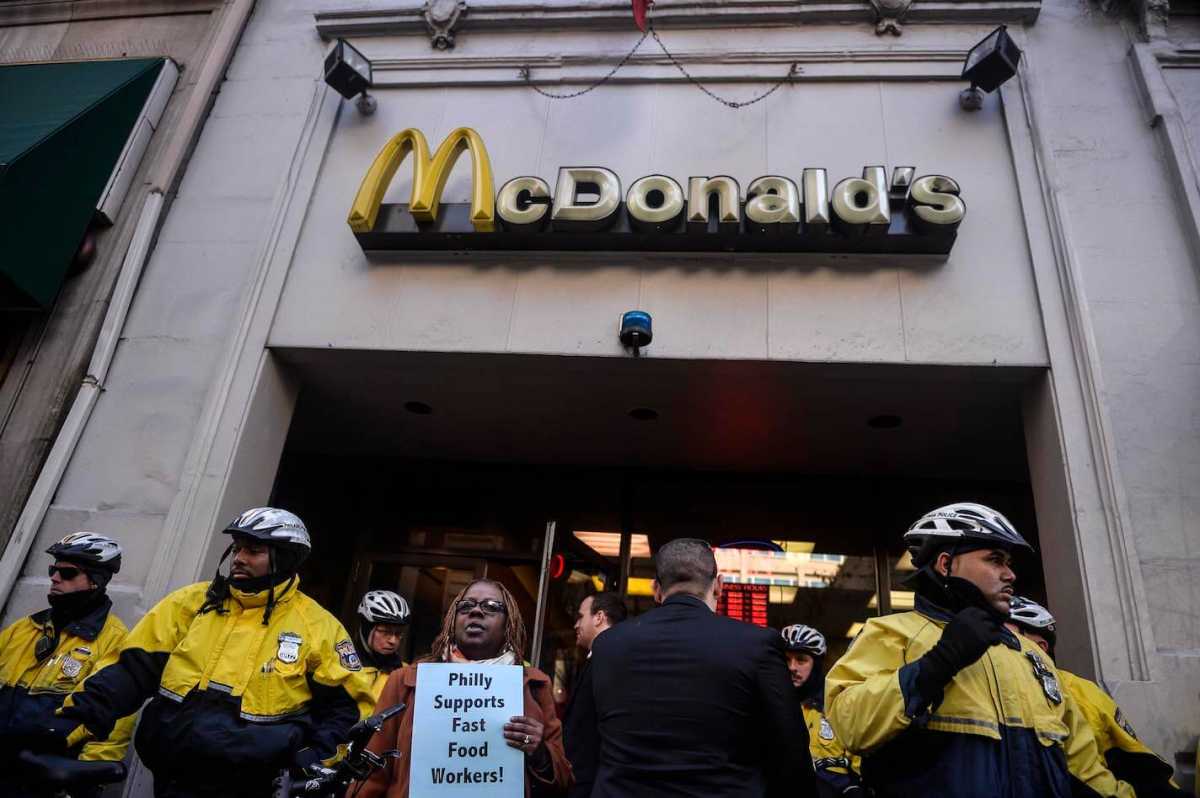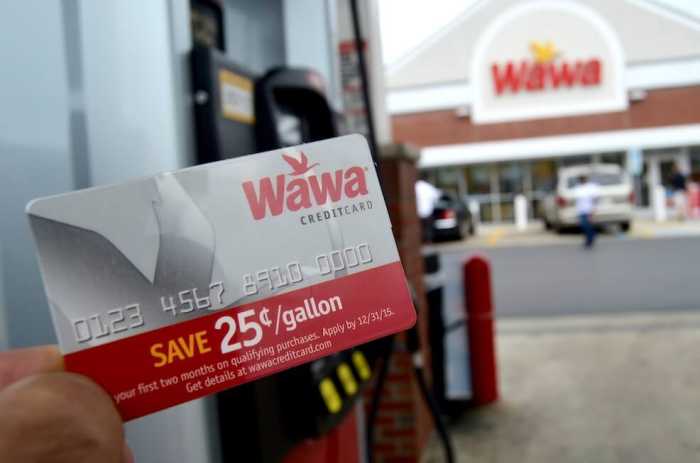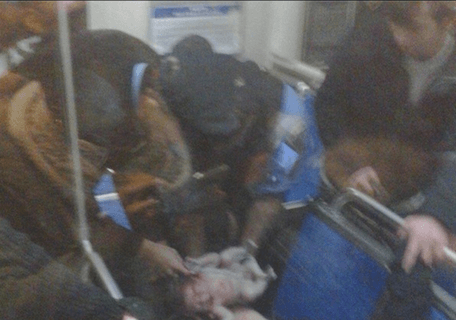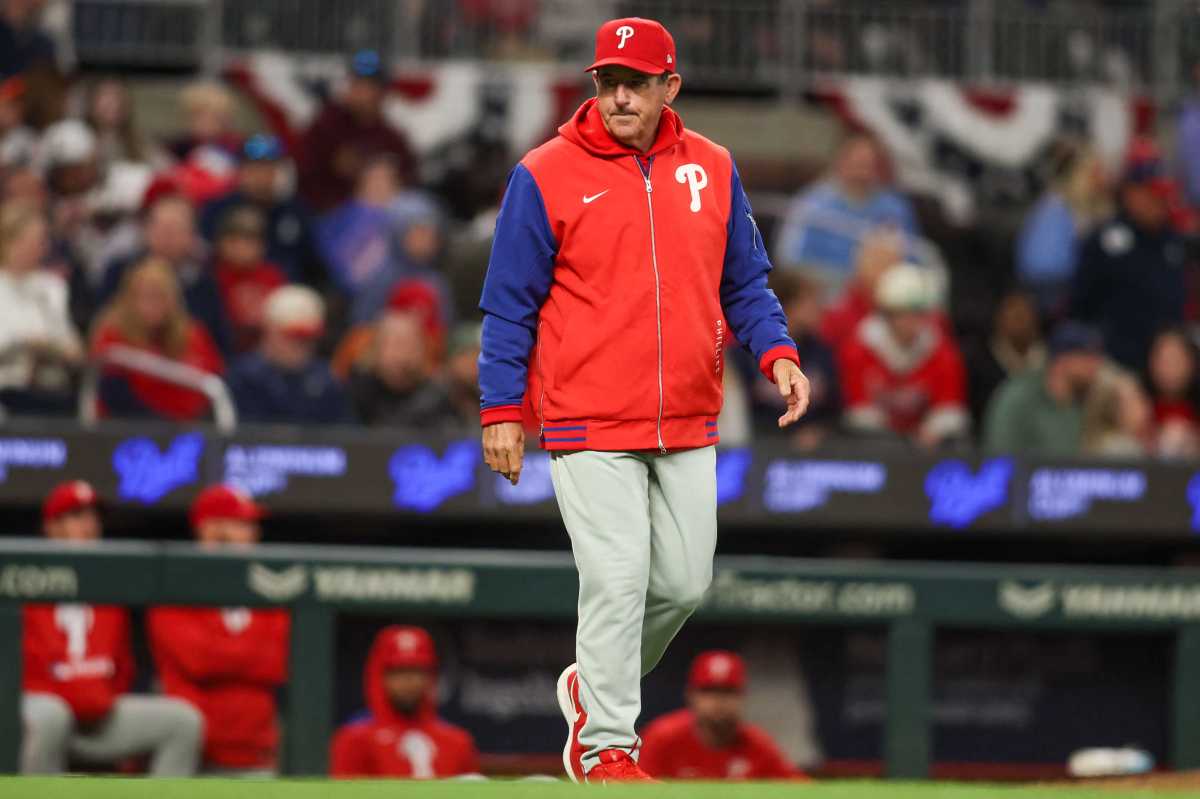Minimum wage workers shut down Philly streets for $15/hour
Shymara Jones has been working as a cashier at Popeye’s for five years, but still earns just $7.60 an hour. That’s why she joined in a protest against her employer on Thursday.
“My biggest struggle right now is working two jobs, paying my tuition off and not being able to see my son all seven days,” the 21-year old said.
Jones was one of hundreds of low and minimum-wage Philadelphia workers who joined workers across the U.S Thursday in marches to call for cities to raise the minimum wage to $15 an hour.
A South Philadelphia High School graduate with a 2-year-old son, Jayden, Jones finished a Kaplan Career Institute course to be a medical assistant in November. She spent $16,000 on the course and hasn’t been able to get a medical job. Nor can she get additional hours at Popeyes, she said.
“When I do see my son I need a chance to take him out and have fun with him, but once I get a paycheck, I’m broke again,” she said. “The CEO of Popeyes makes over $3 million a year.”
Republican City Council candidate Matt Wolfe says cities shouldn’t be legislating wages.
“This is a issue that has to be dealt with on a federal or state level, not a local level,” he said. “It is nothing more and nothing less than City Council pandering to special interest groups to the detriment of Philadelphia.”
President Barack Obama has failed to persuade Congress to raise the minimum wage to $10.15 an hour.
Temple University law professor Brishen Rogers says Philadelphia and other cities must act where Congress won’t.
“It means a Big Mac will cost a little more, but it’s worth it,” said Rogers. “Is it feasible for the city to be a city where workers are paid so little that they have to use public assistance?”
Rogers authored a paper, “Justice at Work: Minimum Wage Laws and Social Equality,” in which he argues that based on demand elasticity for minimum wage labor, a 10 percent increase in the minimum wage would only lead to a two percent decrease in unemployment — or in other words, the benefits are greater than the risks.
“Do we want to live in a society that is built on very low wage labor? Or do we want to work in a society where workers are compensated fairly and appropriately and treated with dignity?” Rogers asked.
“For example, if we think that we’re going to lose jobs from raising the minimum wage, then we should reduce the wage to $3 – then everyone would be working,” he said.
But Wolfe said a 2006 preemption clause added to the state’s 1968 minimum wage law would prevent any municipality from raising the wage on its own.
“It’sillegal, it would cost money to fight this in court, and they would lose,” Wolfe said. “Minimum wage is here to stay, but it’s something that needs to be negotiated through the legislative process.”
However, 15Now Philly, a local activist group, has released a detailed legal memo arguing that the 2006 clause should not be interpreted to bar any raise in the wage.
City lawyers are reportedly currently studying whether a move to increase the wage in Philly is legal.
If it is, Councilman Kenyatta Johnson said he would “strongly consider” introducing such minimum wage legislation, theInquirerpreviously reported and a spokesman confirmed.



